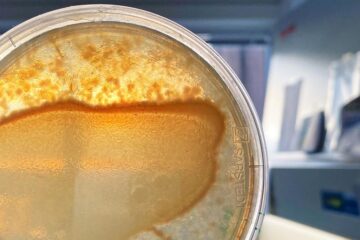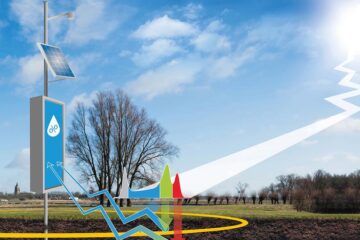Final Conference of EU Project Eco4Life-South Baltic Network for Environmental and Life Sciences

It served as communication platform and tool for cross-border knowledge exchange, technology transfer and partnering, and attracted international awareness to the South Baltic Region.
Experts from Poland, Germany, Lithuania, Denmark, Italy and Japan discussed best-practices in the South Baltic area in the field of Diabetes, Oncology, Epidemiology and Cardiometabolic Risk and Apheresis.
Baltic Apheresis Working Group
As a direct results of the conference, a „Memorandum of Understanin“ on a Baltic Apheresis Working Group was signed between BioCon Valley, Scanbalt, Apheresis Center Rostock and network partners from Poland, Danmark and Lithuania.
Apheresis tecnologies are very safe and can be used to treat a wide spectrum of metabolic, immunologic and rheologic disturbances. The federal state Mecklenburg-Vorpommern in North Germany is considered a leading region of apheresis treatment and research in Germany.
Nevertheless, there is an urgent need to consolidate register and clinical case data on apheresis treatment from different Baltic Sea Regions, and to develop within the Working Group new strategies how to properly design clinical trial protocols in particular disease entities.
about Eco4Life:
The project “Eco4Life-South Baltic Network for Environmental and Life Sciences to Boost Cross Border Cooperation” plans to network and bundle competencies in environmental and Life Sciences in the coastal regions of Mecklenburg-Vorpommern, the West Pomeranian Voivodeship and the Klaipeda County.
The overall idea of the project is to decrease existing differences within the South Baltic area with regard of access to knowledge, technologies and development in the field of knowledge based bio economy. The main focus is to integrate two further South Baltic regions (Klaipeda and Zachodniopomorskie) into the related international cooperation of business, science and administration. This shall be achieved through specialised support structures (Eco4Life contact points).
The project enables the regions and their businesses to establish alliances, which would allow for competing in the field of knowledge based bio economy on the international level. The target groups of Eco4Life, therefore, are existing knowledge based businesses, potential innovative start-ups in bio/life sector, regional politicians and key administrative offices.
The project is co-funded by the South Baltic Programme of EU.
Contact:
Birgit Pscheidl
BioCon Valley® GmbH
Walther-Rathenau-Str. 49a,
17489 Greifswald, Germany
Tel.: +49 3834 515-307
Fax: +49 3834 515-102
E-Mail: bp@bcv.org
Weitere Informationen:
http://www.eco4life.info
http://en.southbaltic.eu
http://www.scanbalt.org
Media Contact
Weitere Informationen:
http://www.bcv.orgAlle Nachrichten aus der Kategorie: Veranstaltungsnachrichten
Neueste Beiträge

Das Mikrobiom verändert sich dynamisch und begünstigt wichtige Funktionen für den Wirt
Ein interdisziplinäres Forschungsteam des Kieler SFB 1182 untersucht am Beispiel von Fadenwürmern, welche Prozesse die Zusammensetzung des Mikrobioms in Wirtslebewesen steuern. Alle vielzelligen Lebewesen – von den einfachsten tierischen und…

Wasser im Boden – genaue Daten für Landwirtschaft und Klimaforschung
Die PTB präsentiert auf der Woche der Umwelt, wie sich die Bodenfeuchte mithilfe von Neutronenstrahlung messen lässt. Die Bodenfeuchte hat nicht nur Auswirkungen auf die Landwirtschaft, sondern ist als Teil…

Bioreaktor- und Kryotechnologien für bessere Wirkstofftests mit humanen Zellkulturen
Medizinische Wirkstoffforschung… Viele Neuentwicklungen von medizinischen Wirkstoffen scheitern, weil trotz erfolgreicher Labortests mit Zellkulturen starke Nebenwirkungen bei Probanden auftreten. Dies kann passieren, wenn zum Beispiel die verwendeten Zellen aus tierischem…





















